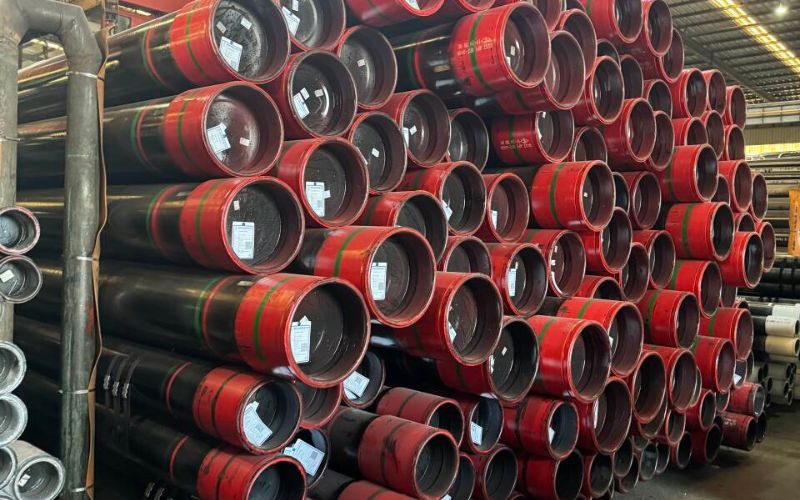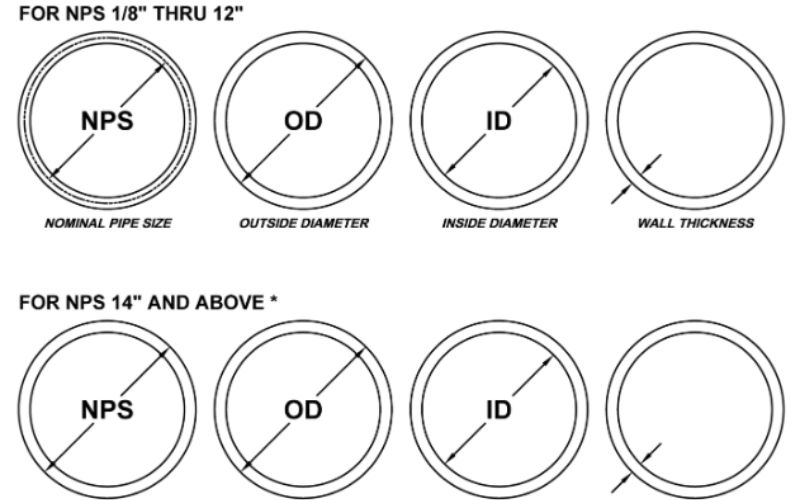In oil, gas, and water industries, the use of highly durable, reliable, and standardized materials is very critical. API 5L Grade B pipe is one of these essential components which has become a global standard for transportation pipelines. Even if you are an engineer, a project manager, or a procurement specialist, knowing the basic specifications of these pipes is a must to ensure high operational efficiency and also to maintain compliance with the industry. This in-depth guide will take you step by step through all the details regarding API 5L Grade B pipes and will illuminate their specifications, applications, manufacturing standards, etc. At the end of the guide, you will be very well informed about why these pipes have gained the trust of several industries and the effect they can have on the win of your projects.
Understanding API 5L Grade B Pipe
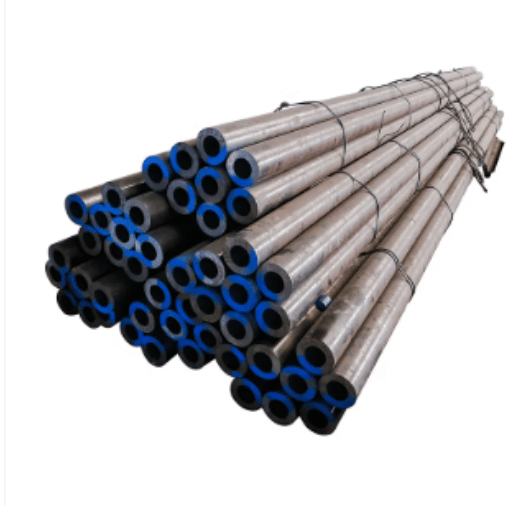
Pipes of API 5L Grade B are created with the intention to fulfill the requirements of the oil, gas, and water industries in the most efficient way over long distances. Their main characteristic is the even combination of their strength and durability, which makes them fit for use both onshore and offshore. In addition, the production of these pipes follows the American Petroleum Institute (API) standards, which means the quality is the best and the performance is the same all the time.
Essential Characteristics
Material Composition
The primary material used is carbon steel that not only gives the pipes great strength but also makes them resistant to corrosion.
Wall Thickness
Different wall thicknesses are offered to fit the needs of different pressure levels.
Standards Compliance
Compliance with API 5L specifications is a guarantee of reliability and adherence to industry standards.
Applications
The energy sector most often resorts to these pipes for pipeline transportation and distribution applications.
API 5L Grade B pipes, through compliance with these specifications, can thus guarantee the safety and reliability of pipeline operations in a wide range of environmental and industrial contexts.
Definition and Overview of API 5L Grade B
API 5L Grade B is a steel pipes specification that is widely accepted and used for transporting gas, water, and oil in the energy and petrochemical sectors. It specifies different levels for strength, durability, and performance, thus making those pipes passing through rigorous tests of pressure and temperature resistance. Versatile, these pipes still stick to API 5L specifications and are therefore very reliable for a wide range of industrial applications.
Key Specifications of API 5L Grade B Pipe
📋 Technical Specifications Checklist
Material Composition: It is the carbon steel which is the principal component, and it is mixed with trace elements to make the steel stronger and more durable.- 2
Grades: It has the Grade A and Grade B inclusively, the latter one giving the user the tensile strength that is higher. - 3
Tensile Strength: The field of tensile strength is set at a minimum of 415 MPa to provide the performance under pressure that is reliable. - 4
Yield Strength: There is a minimum yield strength of 245 MPa, which ensures the stability of the structure. - 5
Wall Thickness: The thickness and size are different to be able to satisfy the needs of various pressures and flows. - 6
Types: They are offered in both seamless and welded types depending on the required applications. - 7
Pressure Rating: They are rated for the high-pressure systems in the energy and the industrial sectors since they are able to hold the pressure. - 8
Length: The standard lengths can be random, fixed, or custom-made according to the needs of the project. - 9
Compliance: Complete compliance with the API 5L standard is maintained which guarantees the quality and the industry certification.
With these specifications, API 5L Grade B pipes can be considered as a robust and trustworthy option for the most critical transportation and industrial operations.
Difference Between API 5L Grade B and Other Grades
API 5L Grade B is distinguishable from the other grades mainly by its chemical composition, tensile properties, and applications. Grade B, when compared with the lower grades such as A, provides superior strength and is thus suitable for medium-pressure environments. The upper grades X42 and over supply even more tensile strength and are intended for high-pressure or tough environments, which includes offshore and deep-water applications. The selection of a grade is based on the particular project’s requirements like pressure, temperature, and durability. Grade B is a sensible choice for general utility and at the same time, it is within the API 5L standards.
Manufacturing Process of API 5L Grade B Pipes

The manufacturing process of API 5L Grade B pipes includes a number of essential steps to produce pipes that are strong, durable, and meet the required standards:
Raw Material Selection
The main raw material for pipe production is the high-quality steel which is reliable and strong in many applications.
Steel Processing
The raw steel is processed into flat sheets or coils that will be shaped and piped in the next step.
Pipe Formation
Pipes can be made through either the seamless process where the steel is turned into a hollow cylinder or the welded process where the sheets are rolled and welded together. Typically, seamless pipes are used in high-pressure cases while welded ones are for medium and low-pressure environments.
Heat Treatment
The pipes are subjected to heat treatment in order to improve their hardening, ductility, and tensile strength as mechanical properties.
Sizing and Testing
The pipes are cut to the precise specifications and are tested rigorously including hydrostatic pressure testing, dimensional checks, and non-destructive evaluations. These tests are crucial to ensure that the pipes conform to the API 5L standard.
Surface Finishing
Once testing is done, cleaning and coating occur on pipes to guard against corrosion and thus increasing lifespan.
Final Inspection and Certification
Each pipe is checked for meeting the criteria of API 5L standards and subsequently certified before being made ready for circulation.
This process of manufacturing guarantees the pipes of API 5L Grade B will not only be safe but also reliable and efficient for use in extreme conditions.
Seamless vs. Welded Pipe Manufacturing
| Comparison Aspect | Seamless Pipes | Welded Pipes |
|---|---|---|
| Manufacturing Method | Formed through extrusion process creating continuous cylindrical shape without seams | Formed by rolling flat steel plates into tubular shapes and welding them |
| Structural Integrity | Uniform structure with outstanding strength and pressure resistance | Contains a welded seam at the point of welding |
| Cost Efficiency | Higher cost due to complex manufacturing | More economical option |
| Pressure Applications | Ideal for high-pressure and critical situations | Suitable for lower-pressure applications |
| Durability | Superior durability and integrity | Good durability for general applications |
Quality Control in Pipe Manufacturing
In the manufacturing of pipes, quality control is the most important factor in ensuring that the product is safe, reliable, and able to perform well in different applications. The manufacturing process includes inspections and tests that are very strict and done at every single production stage. Among these are the analysis of the material composition, dimensional accuracy checks, and non-destructive testing methods like ultrasonic or radiographic tests to see if there are any defects. For seamless pipes, even more, scrutiny is applied to make sure that there are no material anomalies that could compromise the pipe’s integrity if it is subjected to high pressure. Welded pipes are inspected for the weld seam to verify its uniformity and strength. Following the industry standards and certifications is a vital factor in the quality control process, and this guarantees that both seamless and welded pipes are in accordance with the required specifications and performance criteria.
PSL1 and PSL2: Understanding the Standards
The choice between PSL1 and PSL2 is made according to the application’s distinct quality and reliability requirements.
Mechanical and Chemical Properties
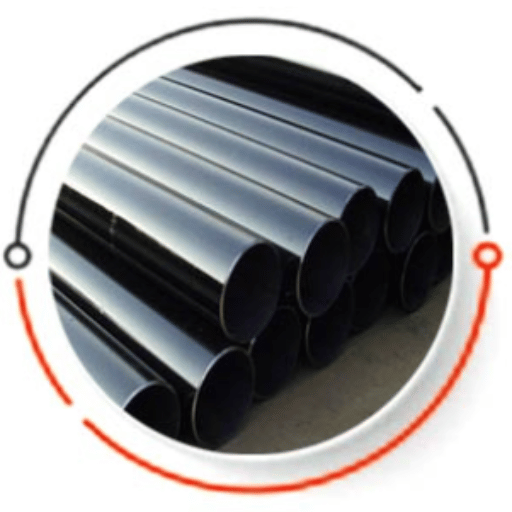
API 5L Grade B pipes are the ones that possess specific mechanical and chemical characteristics to be strong, reliable, and perform well in different areas of application. Here is a brief overview of the main features:
Mechanical Properties of API 5L Grade B
| Property | Specification | Purpose |
|---|---|---|
| Yield Strength | At least 241-245 MPa (35,000 psi) | Ensures structural stability |
| Tensile Strength | At least 414-415 MPa (60,000 psi), maximum 550 MPa | Provides reliable performance under pressure |
| Elongation | Specified according to pipe diameter and wall thickness | Provides ductility and resistance to cracking |
API 5L Grade B is a steel that has a dual role of strength and ductility at the same time; thus, it can be used for pipeline transport systems. The steel offers elongation properties that are enough for a good measure of flexibility and a good resistance to cracking even under high-stress conditions. It, therefore, works fine in different kinds of operating environments with less demanding applications.
Chemical Composition Requirements
| Element | Maximum Percentage | Function |
|---|---|---|
| Carbon (C) | 0.28% (PSL1) / 0.24% (PSL2 seamless) | Provides strength |
| Manganese (Mn) | 1.20% (depends on diameter and PSL level) | Gives toughness and impact absorption |
| Phosphorus (P) | 0.03% maximum | Maintains workability and weldability |
| Sulfur (S) | 0.03% maximum | Reduces brittleness, improves weldability |
| Additional Elements (PSL2) | Ni, Cu, Cr, Mo, Nb, V, Ti (trace amounts) | Enhances toughness, resistance, and grain structure |
The chemical composition plays a fundamental role in keeping the material’s mechanical properties and operation performance stable. Typical specifications include control over the carbon (C) level that comes with strength, manganese (Mn) that gives toughness, and silicon (Si) that makes the material hard. Sulfur (S) and phosphorus (P) are allowed in very low amounts to make the material less brittle and more weldable. Besides the main alloying elements, there can be niobium (Nb), vanadium (V), or titanium (Ti) in small quantities to assist in polishing the grain structure and achieving the proper mix of strength and ductility.
Impact of Properties on Pipe Performance
- ⚡
High Strength: Controlled additions of carbon and alloying elements allow pipes to take large internal pressures. - 💪
Toughness: Manganese permits the pipes to absorb impacts and prevent brittle failure. - 🛡️
Wear Resistance: Silicon increases hardness, leading to higher wear resistance. - 🔗
Weldability: Low levels of sulfur and phosphorus secure better weldability and reduced brittleness. - ⚙️
Microstructure Optimization: Elements like niobium, vanadium, and titanium improve performance by optimizing the trade-off between strength and ductility, leading to longer-lasting pipelines.
Applications of API 5L Grade B Pipes
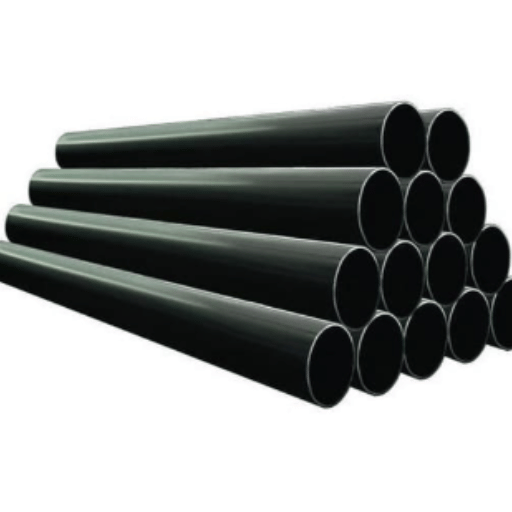
API 5L Grade B pipes are powerful and versatile, which is why they are a favorite in many different industries. The most popular uses are the following:
Oil and Gas Transportation
Used to move crude oil, natural gas, and refined petroleum over long distances through pipelines.
Water Distribution
The best option for water distribution systems due to their durability and reliability.
Structural Applications
Used as structural support in construction and infrastructure projects including piling and framework.
Industrial Use
Essential in chemical and power production plants requiring high pressure and fluid transfer capabilities.
The fact that their strength and adaptability to different environments make the pipes a crucial choice among the industries that need efficient and reliable solutions.
Common Industries Utilizing API 5L Grade B Pipe
Oil and Gas
These pipes are the primary means for moving crude oil, natural gas, and refined products over long distances.
Construction
Their strength and flexibility make them the best choice for piling and structural framework in infrastructure development.
Energy
Power plants often require high-pressure fluid transportation where B pipes grades come in handy.
Chemical and Petrochemical
They have an excellent ability to handle and transfer chemicals with great precision in different temperatures and pressures.
The ability of these pipes to meet rigorous industry standards makes them an essential part of the process in these sectors.
Specific Applications in Line Pipe and Sour Service
📏 Line Pipe Applications
Line pipes are the main means of transporting oil, natural gas, and water over great distances, thus providing efficient and reliable flow even under high pressures and during difficult situations.
⚗️ Sour Service Applications
For sour service applications, which are environments containing hydrogen sulfide, these pipes are uniquely designed with superior material properties to avoid sulfide stress cracking and corrosion. This very quality makes them indispensable in the safe and efficient running of oil and gas exploration, refining, and distribution systems.
Key Benefits of Using API 5L Grade B
- ✓
Superior Strength: Extremely good resistance to mechanical stress allows transmission of oil, gas, and water under high pressure. - ✓
Corrosion Resistance: Non-corrosive nature adds to the pipes’ longevity in sour service conditions, lowering maintenance expenses. - ✓
Easy Weldability: Easily welded, making installation faster and more efficient. - ✓
API Compliance: Strict API specs compliance guarantees reliability and safety in major infrastructure projects. - ✓
Cost-Effective: Affordable and reliable pipeline material for various applications.
Due to their strength, adaptability, and meeting of very high quality standards, API 5L Grade B pipes provide enormous benefits in different sectors, making them a pipeline material that is both affordable and reliable for various applications.
Reference Sources
- Vic Steel Pipe – What is API 5L GR B Pipe Specification?
Describes among others the usage of API 5L Grade B pipes in the oil and gas industry and other sectors where high durability is a must. - Amco Metals – Role of API 5L Gr B Seamless Pipe in Marine Industries
Cites the necessity of API 5L Grade B seamless pipes in marine industries, emphasizing their strength, durability, and resistance to corrosion. - Federal Steel – API 5L Pipe: A Guide to its Standards and Applications
Offers an in-depth guide to API 5L pipes specifying their standards and applications in oil, gas, and water supply industries.
Frequently Asked Questions (FAQs)
Conclusion
API 5L Grade B pipes represent a critical component in modern industrial infrastructure, offering an optimal balance of strength, durability, and cost-effectiveness. Their compliance with stringent API standards, combined with versatile applications across oil, gas, water, and construction industries, makes them an indispensable choice for pipeline projects worldwide. Whether you’re planning a new installation or upgrading existing systems, understanding these specifications ensures informed decision-making and long-term operational success.



